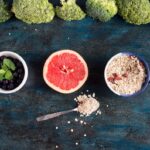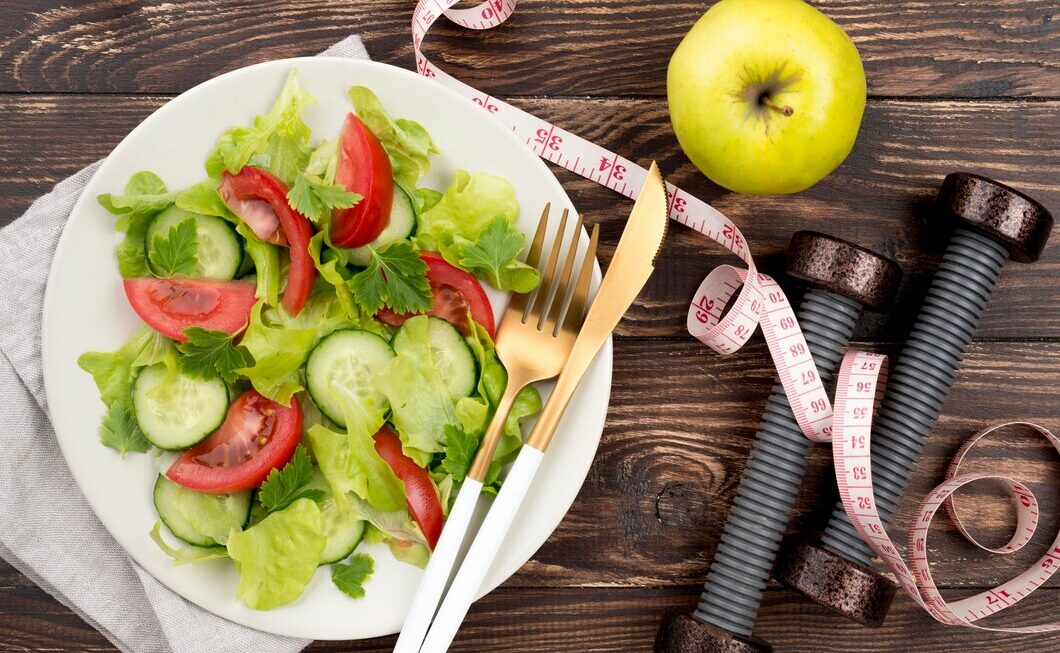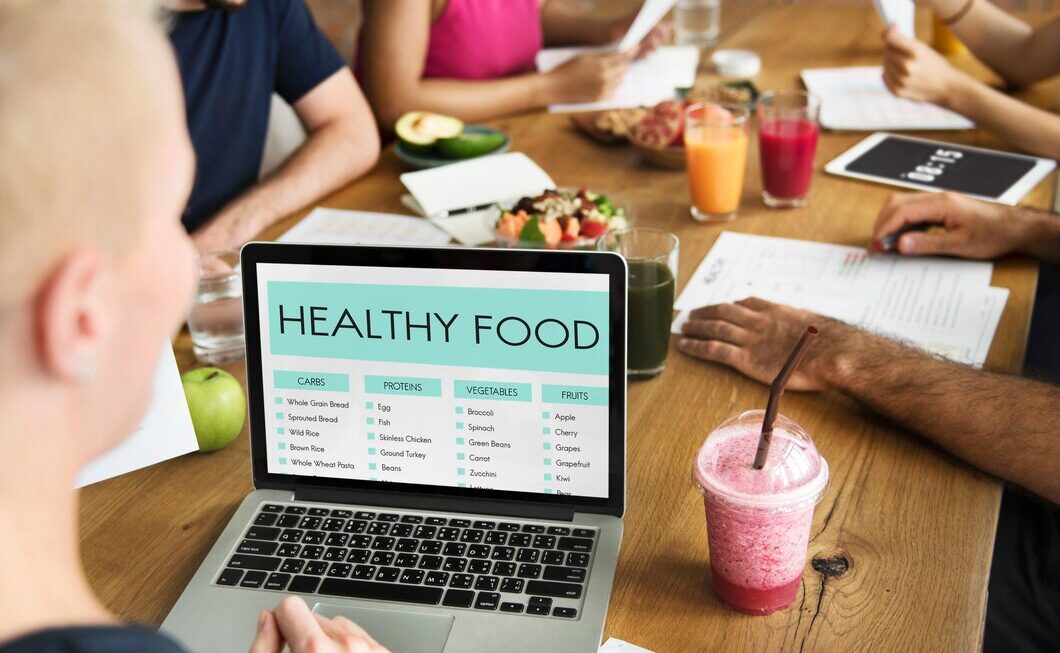The allure of a quick “reset” is strong, and the terms “detox” and “cleanse” have become ubiquitous in wellness culture, often paired with plant-based eating. While a well-structured vegan diet offers profound health benefits, the concept of needing specific vegan detox protocols or cleanses to purge toxins is largely based on marketing hype rather than scientific reality.
This analysis examines the “vegan detox” phenomenon through the lenses of nutritional science, ethical marketing, environmental impact, and lived experience, aiming to separate pseudoscientific claims from genuine pathways to plant-powered health and debunk common myths surrounding this popular trend.
Vegan Detox Myths Debunked: What Truly Cleanses Your Body
LENS 1: Nutritional Analysis – Your Body’s Built-In System
From a nutritional science standpoint, the very premise of needing short-term, restrictive “detox” diets is flawed. Our bodies possess sophisticated, constantly operating systems designed to neutralize and eliminate harmful substances.
- The Myth of Toxin Buildup: Healthy bodies don’t accumulate “toxins” that require drastic juice fasts or specific cleanses for removal. The liver, kidneys, lungs, skin, and gastrointestinal tract work tirelessly to process metabolic byproducts and environmental exposures. The idea that specific foods (often healthy ones!) create toxic sludge removable only by extreme diets is biologically inaccurate.
- Nutritional Shortcomings of Cleanses: Most vegan “detox” plans (e.g., juice-only cleanses, severely restrictive raw food regimens) are nutritionally inadequate. They often lack sufficient protein (risking muscle loss), essential fatty acids (vital for cell function), fiber (crucial for gut health and natural elimination), and various micronutrients. Calorie levels are frequently too low to support basic metabolic functions long-term.
- Blood Sugar Rollercoasters & Rebound Effects: Juice cleanses, lacking fiber and protein, can cause rapid spikes and crashes in blood sugar, leading to fatigue, irritability, and cravings. Any weight lost is primarily water and potentially muscle, often quickly regained (sometimes with extra) once normal eating resumes.
- Supporting Natural Detox, Not Replacing It: A balanced, whole-food vegan diet rich in fiber, antioxidants, vitamins, and minerals supports the body’s natural detoxification pathways. Cruciferous vegetables (broccoli, kale), alliums (garlic, onions), berries, legumes, nuts, and seeds provide nutrients the liver and kidneys use for optimal function. This consistent support is far more effective than short bursts of deprivation. Have you ever felt pressured to try a ‘detox’ despite your body feeling fine?
Nutritional Deep Dive: Liver Detoxification Pathways
The liver detoxifies substances in two main phases (Phase I and Phase II). Phase I uses enzymes (like Cytochrome P450) to make toxins more water-soluble, sometimes creating intermediate compounds that can be more reactive. Phase II conjugates (attaches) molecules to these intermediates to make them less harmful and easily excretable via bile or urine.
Both phases require numerous nutrients readily available in a balanced diet – B vitamins, Vitamin C, E, selenium, zinc, amino acids (from protein), glutathione precursors (from sulfur-rich veggies), and antioxidants. Starvation or severe nutrient restriction, common in detoxes, can actually impair these vital pathways.
Voice of Experience (Registered Dietitian & Skeptic): “The term ‘detox’ has been hijacked by marketing. Your body detoxifies 24/7. These cleanses offer no scientifically proven benefits beyond placebo and temporary water weight loss, while potentially posing risks like nutrient deficiencies and fostering unhealthy relationships with food. Focus on nourishing your body consistently, not punishing it periodically.” – Dr. Anya Sharma, RD, PhD
LENS 2: Ethical Framework – Marketing Health or Hype?
The promotion of vegan detox products and programs raises significant ethical questions, particularly when viewed against the compassionate principles often associated with veganism.
- Exploiting Health Anxieties: Detox marketing often preys on common insecurities about body image, weight, and vague fears of “toxicity.” It creates a problem (toxic buildup) that its product supposedly solves, using pseudoscientific jargon and compelling anecdotes instead of robust evidence.
- Misleading Claims & Lack of Substantiation: Many detox products lack credible scientific backing for their specific claims. Promises of purging specific toxins, boosting metabolism long-term via short cleanses, or achieving lasting weight loss are typically unsubstantiated. Is it ethical to profit from claims that don’t hold up to scientific scrutiny?
- Commodification of Wellness: The detox industry turns health into a commodity, suggesting well-being can be bought through expensive juices, supplements, or programs, rather than cultivated through consistent, accessible habits. This can disproportionately affect vulnerable consumers seeking quick fixes.
- Contrasting with Ethical Veganism: While promoting evidence-based veganism focuses on reducing harm to animals and verifiable health/environmental benefits, promoting unsubstantiated detoxes can feel like a misalignment, potentially eroding trust within the wellness and vegan communities. Does the marketing around detox products sometimes feel manipulative?
Hidden Benefits (of Rejecting Detox Culture):
Stepping away from the detox trend offers its own rewards: saving money otherwise spent on overpriced products, reducing anxiety about food choices and perceived bodily “impurity,” fostering a more positive and sustainable relationship with eating, and focusing energy on genuinely health-promoting, evidence-based behaviours.
Voice of Experience (Consumer Advocate): “The detox market is rife with misleading advertising. Consumers are often paying premium prices for products based on vague promises and pseudoscience. We need greater transparency and accountability, challenging companies that profit from health misinformation.” – Ben Carter, Consumer Rights Watch
Critical Reassessment: The “Clean Eating” Slippery Slope
While distinct, the intense focus on “purity” in detox culture can sometimes overlap with or morph into overly restrictive “clean eating” patterns, potentially acting as a gateway to disordered eating behaviours like orthorexia nervosa (an obsession with healthy eating).
LENS 3: Environmental Scientist’s Analysis – The Footprint of the “Cleanse”
While a standard whole-food vegan diet is generally environmentally beneficial, the specific practices associated with trendy vegan detox protocols can carry surprising environmental costs.
- Packaging Waste: Many commercial juice cleanses involve dozens of single-use plastic bottles per person for just a few days. This contributes significantly to plastic waste, counteracting some environmental benefits of plant-based choices.
- Food Miles & Exotic Ingredients: Detox trends often popularize exotic “superfoods” (like acai, goji berries, or specific algae) that may need to be shipped long distances, increasing the carbon footprint associated with transportation.
- Food Waste Potential: Highly restrictive protocols can lead to food waste if individuals purchase regular groceries that then spoil while they are on the cleanse. Additionally, the juicing process itself discards nutrient-rich fiber.
- Unsustainable Peaks vs. Consistent Habits: The environmental benefit of veganism comes from consistent, long-term reduction in demand for animal products. Short, unsustainable detox bursts have a negligible positive impact compared to adopting a lasting plant-based diet, and can even be negative if they involve high-waste or high-transport products. Does the packaging and sourcing of detox products align with broader environmental goals?
Market Transformation Map Suggestion: A graph showing the spike in popularity (search trends, sales) of certain detox ingredients (e.g., celery juice, activated charcoal) followed by a decline, contrasted with the steadier growth of staple vegan foods (e.g., tofu, lentils, oat milk).
Voice of Experience (Sustainability Consultant): “From a sustainability perspective, many commercial detox programs are problematic due to excessive packaging and reliance on ingredients with high ‘food miles.’ True eco-conscious eating focuses on local, seasonal, minimally processed foods and waste reduction – principles often at odds with pre-packaged cleanse kits.” – Dr. Isabella Rossi, Environmental Analyst
LENS 4: Everyday Practitioner’s Experience – The Siren Song of the Quick Fix
For individuals drawn to vegan detoxes, the experience is often a mix of hope, temporary effects, and eventual disillusionment, contrasting sharply with the journey of sustainable vegan eating.
- Motivations: People often turn to detoxes seeking rapid weight loss, a feeling of “control” over their health, a “reset” after indulgence, or influenced by social media trends and celebrity endorsements. The promise of quick, dramatic results is compelling.
- The Cleanse Cycle: Initial days might bring perceived benefits like reduced bloating (due to lack of solid food) or temporary energy shifts (often placebo or blood sugar related). However, hunger, fatigue, nutrient deficiencies, social isolation (difficult to eat out or with others), and intense cravings usually follow.
- The Rebound: Once the restrictive period ends, practitioners often experience rebound eating, quickly regaining any lost water weight, and feeling frustrated. This can contribute to cycles of restriction and overcompensation, fostering an unhealthy relationship with food.
- Shifting to Sustainable Health: Many who try detoxes eventually realize their lack of lasting benefit and shift focus towards building consistent, enjoyable, and nourishing eating habits through a balanced whole-food vegan diet. This provides steady energy, long-term health benefits, and freedom from the stressful detox cycle. Have you or someone you know experienced the ups and downs of a detox cleanse?
Daily Impact: Detox Day vs. Balanced Vegan Day
- Typical ‘Detox’ Day: 6 bottles of pre-made juice (various fruit/veg combos, maybe nut milk), water, herbal tea. (Low fiber, low protein, low fat, potentially low calorie, high sugar depending on juices).
- Balanced Vegan Day: Breakfast: Tofu scramble w/ veggies & whole-wheat toast. Lunch: Lentil soup w/ side salad & seeds. Dinner: Quinoa bowl w/ black beans, roasted sweet potatoes, avocado, leafy greens. Snacks: Apple w/ almond butter, handful of walnuts. (High fiber, adequate protein, healthy fats, rich in vitamins/minerals, sustained energy).
Voice of Experience (Former Detox Enthusiast): “I spent years chasing the ‘clean’ feeling from juice cleanses. I’d feel light for a day or two, then crash hard and crave everything. It was exhausting. Finally learning to just eat balanced vegan meals consistently gave me way more energy and peace of mind than any 3-day detox ever did.” – Chloe Davis, Health Blogger
Alternative Approaches: Focus on Fundamentals
Instead of restrictive cleanses, focus on genuinely supportive daily habits: adequate hydration (water!), high fiber intake (whole grains, legumes, fruits, vegetables), regular exercise (promotes circulation and elimination), sufficient sleep (critical for repair processes), and managing stress. These support the body’s natural systems effectively and sustainably.
PERSPECTIVE INTERSECTION MATRIX
- Nutrition & Ethics: Promoting nutritionally inadequate or potentially harmful detoxes (Lens 1) under the guise of health raises serious ethical concerns (Lens 2).
- Ethics & Marketing: Unsubstantiated health claims used in detox marketing (Lens 2) directly contradict the scientific understanding of nutrition and physiology (Lens 1).
- Environment & Practice: The wastefulness of many detox products (Lens 3) clashes with the sustainable practices many everyday vegans strive for (Lens 4).
- Practice & Nutrition: Negative practitioner experiences with detoxes (Lens 4 – hunger, rebound weight gain) often stem from the nutritional inadequacy and unsustainability highlighted by science (Lens 1).
- Marketing & Practice: Persuasive marketing (Lens 2) drives individuals (Lens 4) to try detoxes, despite potential nutritional (Lens 1) or environmental (Lens 3) downsides.
MISCONCEPTION ANALYSIS
| Misconception | Reality |
| You need specific ‘detox’ diets to cleanse your body. | Your liver, kidneys, lungs, skin, and gut are constantly detoxifying. They need consistent nutrient support from a balanced diet, not extreme short-term protocols. |
| Juice cleanses “rest” your digestive system. | Digestion is a natural process. Fiber, eliminated in juicing, is crucial for gut health, feeding beneficial bacteria and aiding elimination. Lack of fiber can worsen constipation for some after the cleanse. |
| Feeling bad during a detox (“healing crisis”) is good. | Symptoms like fatigue, headaches, or nausea during extreme restriction are typically signs of calorie/nutrient deprivation or blood sugar imbalance, not effective “detoxing.” |
| Vegan detoxes lead to lasting weight loss. | Weight loss is mainly water and possibly muscle mass, not fat. It’s unsustainable and usually regained quickly. Lasting weight management requires sustainable dietary changes and lifestyle habits. |
| “Detoxing” removes specific food sensitivities. | While temporarily eliminating foods might reduce symptoms, it doesn’t diagnose or cure underlying allergies or sensitivities. Proper elimination diets should be supervised by professionals. |
KEY TURNING POINTS
- Rise of Celebrity Endorsements (Early 2000s onwards): High-profile celebrities popularizing specific detox methods (like the Master Cleanse) brought the concept into the mainstream.
- Social Media & Influencer Culture (2010s onwards): Visually driven platforms became fertile ground for promoting aesthetically pleasing (but often nutritionally poor) detox juices, teas, and regimens, often with undisclosed sponsorships.
- Growth of Commercial Detox Industry: Proliferation of companies selling pre-packaged juice cleanses, detox kits, and supplements, capitalizing on the wellness trend.
- Increased Scientific Debunking in Media (Mid-2010s onwards): Growing pushback from registered dietitians, medical doctors, and science communicators challenging detox claims in articles, documentaries, and online platforms.
- Shift Towards Sustainable Wellness: A gradual cultural shift, partly in reaction to extreme fads, towards prioritizing long-term, balanced habits, intuitive eating, and body positivity over quick-fix detoxes.
SYNTHESIS & RECOMMENDATIONS
The concept of requiring specific vegan detox diets or cleanses is overwhelmingly unsupported by science and often driven by misleading marketing. While originating from a desire for health and purification, these protocols are typically nutritionally inadequate, unsustainable, ethically questionable in their promotion, and potentially wasteful.
They stand in stark contrast to the genuine, science-backed benefits of a consistent, well-planned whole-food vegan diet. Such a diet naturally supports the body’s sophisticated detoxification systems by providing essential fiber, antioxidants, vitamins, and minerals, without the risks and pitfalls of extreme restriction.
True plant-powered health isn’t found in a temporary, punishing cleanse, but in the cumulative effect of nourishing your body with diverse, whole plant foods day after day.
Recommendations:
- Distrust Quick Fixes: Be critical of any diet or product promising rapid, dramatic detoxification or weight loss.
- Focus on Whole Foods: Build your diet around fruits, vegetables, whole grains, legumes, nuts, and seeds.
- Prioritize Fiber & Hydration: These are key for natural digestion and elimination. Drink plenty of water.
- Support Your Organs: Eat nutrient-dense foods that provide the vitamins, minerals, and antioxidants your liver and kidneys need.
- Embrace Consistency: Sustainable healthy habits yield far better long-term results than short, extreme cycles.
- Seek Credible Information: Rely on registered dietitians, medical professionals, and evidence-based resources, not just marketing claims or influencer posts.
FURTHER AREAS OF EXPLORATION
- The Psychology of Cleansing and Ritual Purification
- History of Detoxification Fads Through the Ages
- Orthorexia Nervosa and the Link to “Clean Eating”
- The Role of the Gut Microbiome in Natural Detoxification
- How Marketing Creates Health Trends
- Evidence-Based Strategies for Supporting Liver and Kidney Health












